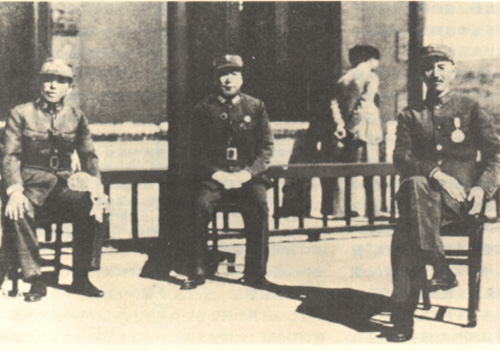Admiral Beez
Major
Was there any realistic, face saving option for Japan between their July 1937 invasion of China to before Dec 1941 Pearl Harbor to avoid war with the US and British Empire? The USA's ten points were neither realistic nor face saving.
And if not after the 1937 invasion of China, was there any realistic opportunity to come to terms with Japan before 1937? The Australians were particularly eager to maintain good relations with Tokyo.
And if not after the 1937 invasion of China, was there any realistic opportunity to come to terms with Japan before 1937? The Australians were particularly eager to maintain good relations with Tokyo.
Last edited:

